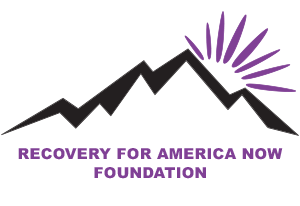Recovery Capital
At Recovery for America Foundation, we believe that treatment is not the end goal, but rather the start of a new life and a journey towards fulfillment. As such, we are strong advocates for a Holistic approach to treatment that encompasses all aspects of a person including physical, psychological, social, economic, and cultural factors. Within this framework each person’s strengths, challenges, hopes, goals, and dreams are respected and addressed to reinforce their pathway to recovery.
Recovery capital is defined as the breadth and depth of internal and external resources that can be to initiate and sustain recovery. In our view, each person comes to life with intrinsic value and unique set of talents, which means the miracle of recovery can be achieved by all. In other words, nobody is too sick to recover.
In my 20 years of sobriety, which includes living in several Recovery Houses and becoming a licensed PhD level clinician, I have firsthand knowledge of how important it is for each treatment center to create a vibrant and flourishing recovery community to prevent relapse, save lives and ensure a fulfilling and rewarding life. RANF realizes that sober alumni often represent each treatment center’s strongest resources, and we support the creation and maintenance of a robust alumni program. Sober alumni offer inspiration, compassion, a kind ear, and a real person for newer clients to model. They are the living embodiment of experience, strength, and hope.
The RANF team has designed, implemented, and presided over specialty problem- solving courts (Drug & DUI), in addition we experience with building a recovery community around a new treatment center. As such, RANF advocates for:
Peer-based recovery opportunities and utilizing peers (peer-driven unit) within the treatment regimen
Recovery / Sober Houses (preferably structured and attached outpatient treatment)
Vocational Coaching - treatment centers should establish relationships with local businesses to work with your clients (soft-skills, responsibility, accountability)
Educational opportunities - establish relationships with guidance educational counselors at local educational institutions to work with your clients to assist them in achieving academic success
Life skills development – financial & budgeting, cooking, frustration tolerance
Proximity to mutual aid support groups (build external supports & resources)
